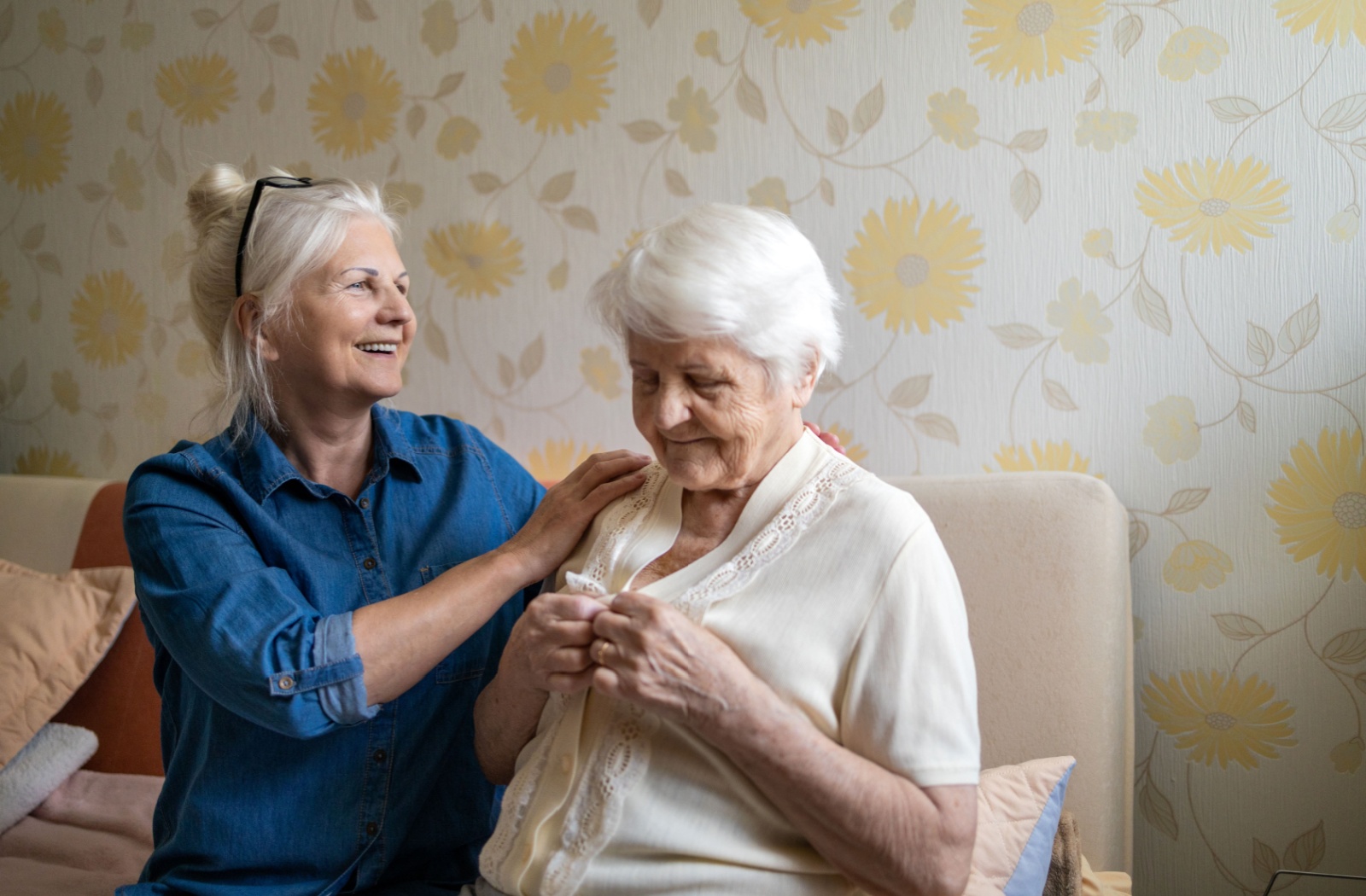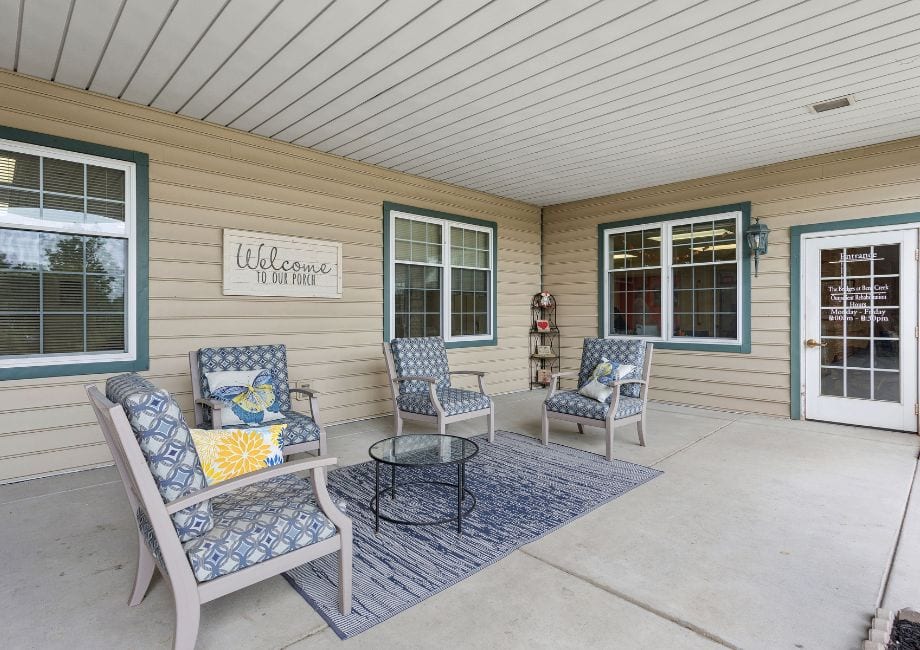Key Takeaways
- The Functional Assessment Staging Test (FAST) helps families understand the 7 stages of dementia and the progression of the condition.
- By breaking down each stage, the FAST Scale offers clarity, enabling caregivers to plan and provide the most appropriate care for their loved ones.
- Utilizing the FAST Scale empowers families to anticipate changes and adapt with compassion, ensuring a dignified and supportive approach throughout the dementia journey.
When a loved one is diagnosed with dementia, it’s normal to feel overwhelmed and uncertain about what’s next. The Functional Assessment Staging Test (FAST) is a tool that maps out the 7 stages of dementia, helping families understand its progression and plan care accordingly.
Learning more about each stage of the FAST Scale can help you ensure your loved one is supported with dignity and compassion. It can also be the first step in a journey of learning more about memory care and how to support a loved one with dementia.
What Is the FAST Scale?
The FAST Scale is a clinical tool developed by Dr. Barry Reisberg that measures functional decline in people with dementia. Unlike other assessments that focus on cognitive abilities, FAST evaluates an individual’s ability to perform daily activities and maintain independence.
This 7-stage framework helps healthcare providers, families, and caregivers understand where someone is in their dementia journey and what support they might need.
Why Does Understanding the FAST Scale Matter?
Knowing your loved one’s stage of care empowers you to make informed decisions about their care. It helps you anticipate changes, prepare for future needs, and ensure they receive the right level of support at the right time. This knowledge also enables better communication with healthcare providers and helps families plan for both immediate and long-term care arrangements.
What Are the 7Stages of the FAST Scale?
The 7 stages of the FAST Scale provide a clear framework for understanding the progression of Alzheimer’s disease. Each stage highlights specific changes and challenges, helping caregivers and families respond with compassion and appropriate support.
Stage 1: No Noticeable Decline
At this stage, your loved one functions normally with no apparent cognitive or functional impairment.
Signs to Watch for: All activities of daily living are performed independently without assistance.
Care Tips: Focus on maintaining healthy lifestyle habits, staying socially engaged, and keeping regular medical checkups to monitor any changes.
Stage 2: Forgetfulness
Mild forgetfulness begins to appear, though it doesn’t significantly impact daily life.
Signs to Watch for: Occasional difficulty remembering names or misplacing items, but these episodes are manageable and don’t interfere with work or social activities.
Care Tips: Encourage the use of calendars, reminder systems, and routines. Support your loved one’s independence while gently introducing organizational tools to help them stay organized.
Stage 3: Mild Cognitive Impairment
More noticeable memory and thinking difficulties emerge at this stage, beginning to affect daily activities.
Signs to Watch for: Problems with complex tasks at work, difficulty remembering names of new people, and challenges with planning or organizing activities.
Care Tips: Help simplify complex tasks, provide gentle reminders, and consider discussing driving safety with healthcare providers.
Stage 4: Moderate Decline
Significant assistance becomes necessary for more complex daily activities at this stage.
Signs to Watch for: Difficulty managing finances, trouble with meal preparation, problems remembering recent events, and challenges with travel to unfamiliar places.
Care Tips: Assist with financial management, assist with meal planning and preparation, and ensure your loved one has supervision for safety during activities that may be hazardous.
Stage 5: Significant Functional Challenges

Your loved one will require substantial help with many aspects of daily living at this stage.
Signs to Watch for: Needs assistance choosing appropriate clothing, may forget important details like their address or phone number, and requires help with some basic activities of daily living.
Care Tips: Lay out clothes daily, ensure they carry identification, and provide supervision during bathing and other personal care activities.
Stage 6: Severe Cognitive Decline
Extensive assistance is required for most daily activities, and behavioral changes may become more pronounced.
Signs to Watch for: Needs help dressing, bathing, and using the toilet. May experience significant personality changes, sleep disturbances, and difficulty recognizing family members.
Care Tips: Provide patient and gentle assistance with all personal care needs. Create a calm environment and consider professional care to ensure their safety and comfort.
Stage 7: Very Severe Decline
Complete care becomes necessary as your loved one loses the ability to communicate effectively and care for themselves.
Signs to Watch for: Limited vocabulary, inability to walk without assistance, difficulty swallowing, and requires help with all basic functions.
Care Tips: Focus on comfort care, maintain dignity during all interactions, and collaborate closely with healthcare professionals to manage medical needs and ensure a high quality of life.
How Can You Use the FAST Scale to Support Your Loved One?
Understanding the FAST Scale can help you navigate the journey of dementia with greater clarity and compassion. While each person’s experience is unique, this framework provides valuable insights to guide care decisions and communication.
- Advocate for Services: Use the FAST Scale to identify the proper care options and ensure your loved one receives appropriate support.
- Communicate Effectively: The scale helps you better explain needs and concerns to healthcare providers.
- Seek Professional Guidance: Geriatricians, social workers, and dementia care specialists can offer tailored support for each stage.
- Leverage Community Resources: Support groups and local programs can offer emotional and practical support to families.
Your compassionate care plays a vital role in preserving your loved one’s dignity and quality of life, no matter where they are in their journey. You don’t have to navigate this alone—help is available.
Discover Exceptional Dementia Care at Bridges at Bent Creek
At The Bridges at Bent Creek, we take pride in providing a warm, nurturing environment tailored to the unique needs of seniors with dementia. With a compassionate team, specialized care programs, and a genuine commitment to preserving dignity, we are here to help your loved one thrive at every stage of their journey.
Contact us today to learn more and discover how our community can be a trusted partner in your caregiving experience.










